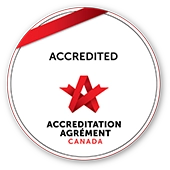Recovery from alcohol addiction requires patience and consistency. Functioning alcoholism is a habit that you grow over a long time. You must correct your brain and body system to adjust to changes.
According to Statista’s 2024 report, Canada recorded about 20% of its citizens as heavy drinkers. For context — a heavy drinker is a female or male who consumes at least four or five drinks, respectively.
Recovery from functioning alcoholism is possible through specialized addiction treatment programs. But most functional alcoholics don’t admit they need help, much less get it.
This blog is your answer to the question of whether recovery from functioning alcoholism is possible. This guide will explore the best functional alcoholism treatment methods and testimonials from people who have achieved sobriety through these programs.
What is Functioning Alcoholism and the Psychology Behind it?
You can’t get treatment for functional alcoholism without understanding the cause of the habit. Functional alcoholism refers to an alcohol-dependent individual who manages to manage a decent life. An ideal functional alcoholic will maintain a regular life despite their alcohol dependence.
Describing them as “functional” enables and possibly fuels the problem. We tend to think that the alcoholic who needs help is the one struggling in life. In contrast, the only difference between a functional alcoholic and someone with Alcohol Use Disorder (AUD) is the everyday life activity.
Functional alcoholics have AUD but know how to disguise it. Some underlying factors that can lead you to functional alcoholism include;
- Social factors like your locality, religion, and family.
- In a 2024 research by the Canadian Centre for Addictions, your genes play a crucial role in alcohol metabolism in the body.
- Office colleagues who have alcoholism will influence you wrongly.
- Mental health issues. Depression and trauma in the past may cause you to be a functional alcoholic.
- Your core friends are the people who have one of the strongest influences on you.
You must effect solid changes on the factors above for complete recovery from functioning alcoholism.
Is There Treatment for Functioning Alcoholism
Here’s what an alcohol treatment program in Toronto looks like:
Acceptance
Recovery from functioning alcohol addiction starts with you. You must have the courage to accept and admit that you’ve got a drinking problem.
One of the most common traits of a functional alcoholic is denying they drink a lot. As such, you may notice them always hiding bottles and cans of alcohol to look clean.
If you come out clean and admit your alcohol problem, you’ve started to walk the path from functioning to flourishing. As such, getting the proper alcohol addiction treatment will only be a matter of choosing the correct medical facility.
If your loved one is a functional alcoholic, you must find ways to get them to accept that it’s a problem. Never attack them with their condition. Instead, speak to them from a place of love and convince them why alcohol rehab is worth it.
Assessment
Any standard alcohol addiction treatment starts with assessing the affected individual. At Addiction Rehab Toronto, we create a treatment plan based on the results of an in-depth assessment.
Our extensive assessment technique is designed to uncover crucial information that will guide your eventual treatment plan. We explore the genesis of the alcohol problem and its extent to figure out the best way to tackle it. The result is a high-impact, customized addiction treatment program aimed at individual needs.
The goal of alcohol addiction treatment with us is complete freedom from the habit. We’re not looking to remove immediate addictions. Instead, we want a wholesome recovery — making you free ultimately.

Alcohol Withdrawal
The next stage to recovery from alcohol addiction is stopping the intake. This stage is where many functional alcoholics make a mistake by trying to do it alone.
Stopping alcohol intake without medical help can cause severe withdrawal symptoms, depending on the stage of your alcoholism. Some of the withdrawal symptoms of stopping alcohol intake include;
- Sweaty
- Loss of appetite
- Incessant headaches
- Insomnia
- Increased blood pressure
- Shaky hands
These symptoms are the early signs of alcohol withdrawal. And you’ll experience them within two hours after you take your last drink. You can control these signs at home with the help of an expert.
If your alcohol intake was very high before stopping, you’ll experience the following symptoms;
- Confusion
- Hallucinations — seeing, feeling, or hearing things that don’t exist.
- Seizures
- Extreme agitation
- High fever
- Increased heart pressure
These symptoms mentioned above are a clear indication of chronic alcohol addiction. You’ll usually notice it between 12 and 72 hours after taking your last alcoholic drink. These signs are an indication that you require immediate hospital care and rehabilitation.
Related Article: The Psychology Behind Functioning Alcoholism: Understanding the Mindset
Rehabilitation
The next stage of alcohol addiction recovery is rehabilitation. Again, this stage depends on the extent of the alcoholic damage done to the affected individual.
Broadly, there are two types of alcohol addiction rehabilitation we offer at Addiction Rehab Toronto;
- Outpatient Rehabilitation: Outpatient rehabilitation is for mild alcohol addicts. These functioning alcoholics aren’t deep into the practice. And they can treat the condition at home — while honouring doctor appointments from time to time. At Alcohol Rehab Toronto, we choose an outpatient treatment for you after a comprehensive assessment of the sources of your addiction and its extent. During outpatient rehab, you recovery from functioning alcoholism depends on you and your loved ones. You must maintain discipline and consistency to follow the guidelines from the expert.
- Inpatient Rehabilitation: This inpatient treatment option is for more severe cases of alcohol addiction. Here, you’ll be spending time in our standard rehabilitation centers. Our clinical staff, physiotherapists, and addiction experts will work hand-in-hand to save you from your addiction. We expect extreme withdrawal symptoms for inpatients. As such, we prepare ahead. You may have to stay in the rehab for as little as thirty days or as much as 90 days. It depends on the extent of your addiction and improvements.
Medication
Drugs may be necessary to help manage alcohol addiction and its symptoms. Health Canada recommends three drugs to manage addiction problems.
- Disulfiram: This is the most common drug, and its idea is to stop you from taking alcohol. Taking alcohol when disulfiram is in your body will cause reactions like sweating, nausea, and severe headaches. These reactions may last up to an hour so you won’t want such experiences.
- Naltrexone: This drug reduces how much you crave alcohol.
- Acamprosate: This drug tries to balance the effects of alcohol on your brain by re-balancing its chemical composition.

Therapy
Therapy is a crucial part of recovery from alcohol addiction. Alcohol affects your behaviours and social interactions. So, there’s a need to utilize therapy to correct it.
At Addiction Rehab Toronto, we utilize various therapy services, including;
- Cognitive behavioural therapy
- Dialectical behavioural therapy
- Psychoeducation
- Mindfulness practices, including yoga, walks, and breathing.
- Music therapy
- Art therapy
- Fitness
- Individual counseling sessions
- Stress and anger management
We choose the best therapy session that will be effective and also spark your interest.
From Functioning to Flourishing: True Alcohol Recovery Stories
Brian: Rejuvenated Family Ties
Brian was an alcohol and drug addict who had lost opportunities in school, work, and life in general. His addiction also affected his relationship with his family. According to him, his mom cried every day and lost sleep because of the fear of what happened to her son.
Treatment at Addiction Rehab Toronto has helped Brian to become a better person. He describes our firm as a place of learning and self-development instead of just addiction treatment.
Today, he’s a happy person who has close ties with his family. Alongside, he can stay alone without feeling sad, lonely, or have thoughts of going back to drugs.
Tania B.: From Anxiety to Family Love and Support
Tania B was on a 30-day addiction treatment program at our facility that started in October 2015. She had a shaky start, as she was anxious initially.
But she got free when she learned that most of our staff had overcome similar problems. She’s still a part of our family and constantly communicates with us.
As a hygiene freak, she loved our clean and spacious rooms. In her words — “The center was always very clean and spotless. Rooms were spacious, cozy and you are able to make it your own during your stay.”
Nick A.: Freedom on the Third Try
The family of Nick knew the importance of addiction recovery. And they have tried on two occasions before finding Addiction Rehab Toronto.
According to Nick, the importance placed on him during the addiction recovery process was top-notch. In his words — “I was not another face in the centre. From the minute I walked in I felt like I was home. The staff was so nice and trustworthy and you can tell they really love their jobs.”
Nick got used to people giving up on him and getting judged — even by addiction treatment centers. However, freedom came into contact with Addiction Rehab Toronto.
Related Article: Health Risks of Functioning Alcoholism: What’s at Stake?
Treatment Program for Functioning Alcoholism in Toronto
Recovery from alcohol addiction needs all hands to be on deck. The job isn’t only on the addiction treatment expert. The functioning alcoholic, family, and loved ones have a huge role to play.
The role of the addiction treatment center is to guide the person with an addiction through the most effective procedures and treatment methods. It’s one we take very seriously. At Addiction Rehab Toronto, our treatment program for alcohol addiction is inclusive and unique to the needs of the patient. We never do any guesswork — you’ll be treated based on your needs.
Book an appointment with us to discuss alcohol addiction intervention strategies for you or your loved one.







